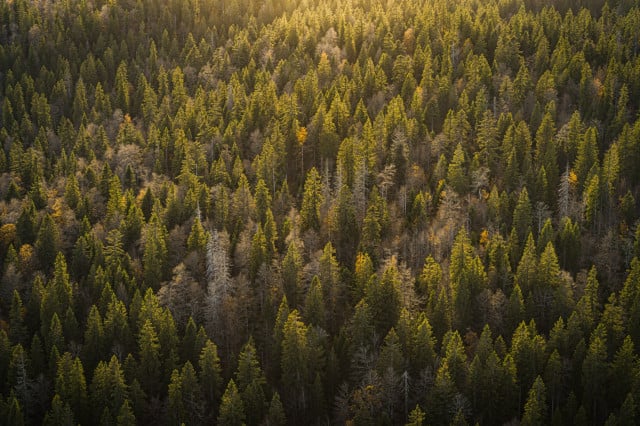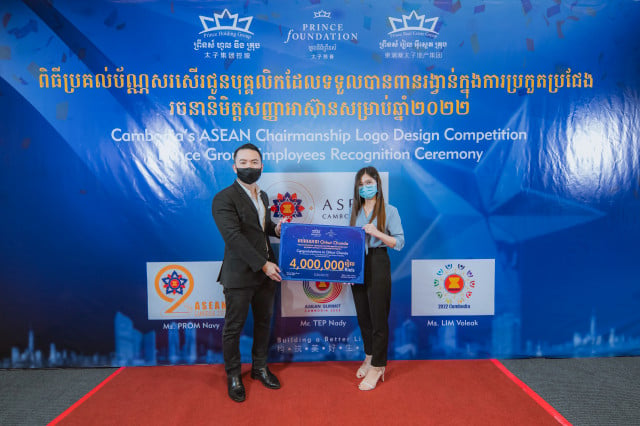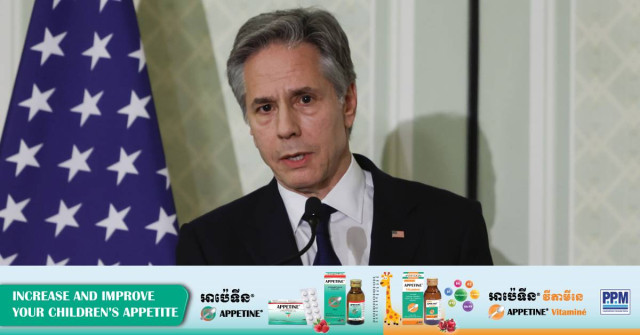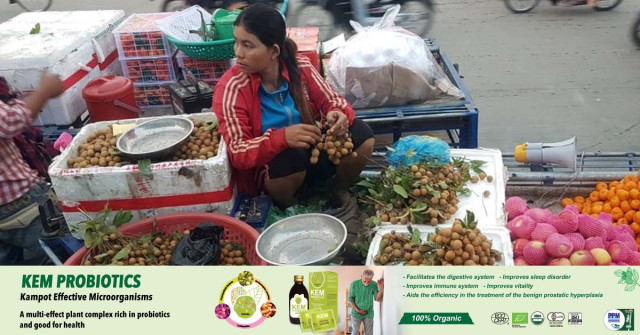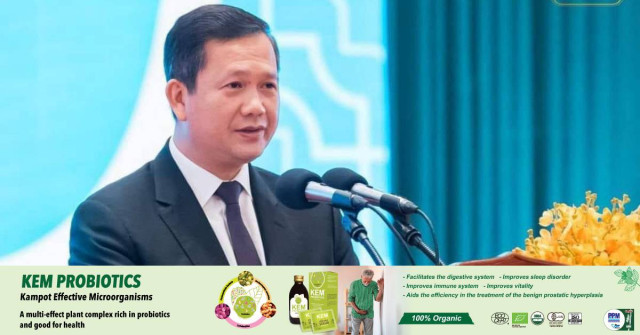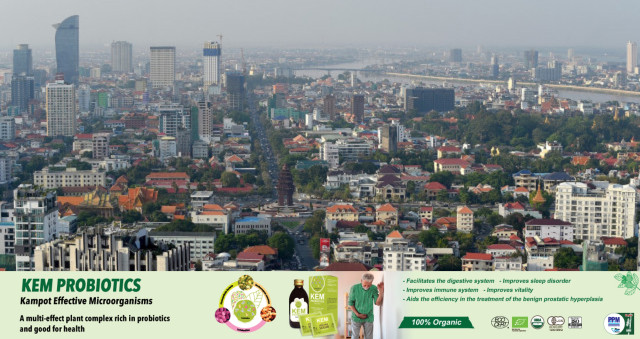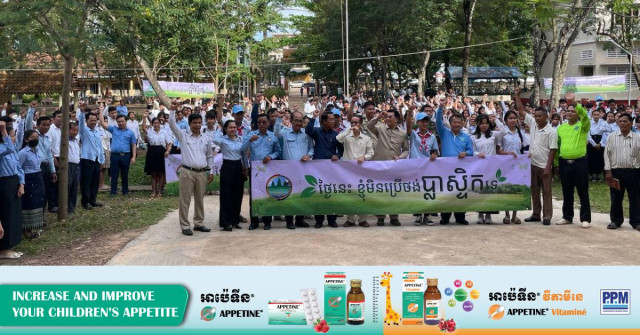Vietnamese Rubber Company Destroyed Indigenous Community Land
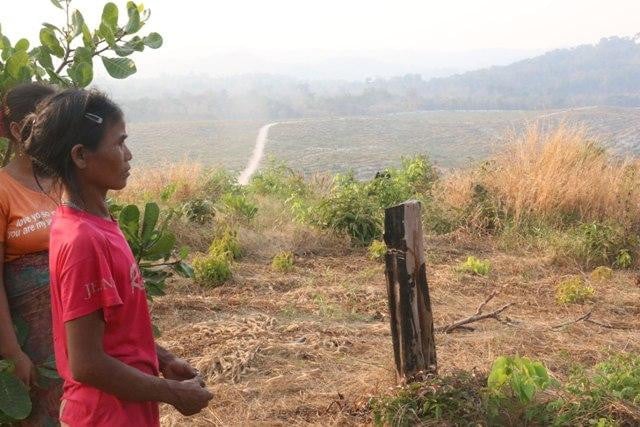
- Phoung Vantha
- May 26, 2020 10:11 AM
Calls are growing for the government to intervene as Hoang Anh Gia Lai reneged on an agreement to return sacred land to Ratanakiri’s indigenous communities.
PHNOM PENH--Indigenous communities in Ratanakiri province on May 25 called on the government to intervene in a land dispute between their villages and Vietnamese rubber company Hoang Anh Gia Lai (HAGL) as the company has failed to return land to the community as agreed.
A mediated agreement in 2015 was supposed to see HAGL return some 742 hectares of sacred land to 12 indigenous communities in Ratanakiri, but as of May 2020, this has not happened. Instead, HAGL carried out sweeping clearances of land in March 2020.
This was land that had been earmarked for return to the communities through a government-led demarcation process and was cleared while indigenous communities were sheltering to avoid the spread of Coronavirus Disease 2019 (COVID-19) according to a statement by Equitable Cambodia—a local land rights non-governmental organization.
“Last March, the governor of Ratanakiri officially requested that the Ministry of Agriculture, Forests and Fisheries return 64 areas or 742 hectares of indigenous customary land that had been improperly included in HAGL’s agricultural land concessions to 12 indigenous communities,” Equitable Cambodia said.
Equitable Cambodia argued that the land is not just culturally important to indigenous traditions, but is also a means for these communities to support themselves, offering a livelihood to an already marginalized part of society.
The areas HAGL cleared in March were among those areas designated for return to Muoy, Inn, Mas and Kak villages.
“The pagoda is a place of religious worship for the Khmer people, but my people believe in the spirits that inhabit the forests and mountains. Now that the company has cleared our spirit mountain, we have no place to pray and the spirits will be very angry with our villagers for allowing this to happen,” said Sev Suen, a community representative from Kak village.
Equitable Cambodia continued that while the communities waited for the official ratification of this land return by the Agriculture Ministry, which had been delayed due to COVID-19, the company bulldozed two spirit mountains, wetlands, traditional hunting areas, and burial grounds. The clearances destroyed old-growth forest and caused irreparable harm to land of priceless spiritual value to the communities.
“HAGL’s destruction of these sacred places is heartbreaking, and the fact that this company used the cover of a global pandemic to unlawfully clear more indigenous land is particularly egregious,” said David Pred, executive director of Inclusive Development International.
Last year’s decision to return community lands resulted from a mediation process convened by the Compliance Advisor Ombudsman (CAO), the independent watchdog of the World Bank’s International Finance Corporation, after the communities filed a complaint with the mechanism in 2014. Through these mediations, in September 2015, HAGL agreed to return land within its concessions that belonged to the communities.
This paved the way for a joint land demarcation process to be undertaken by representatives of the 12 villages, HAGL, a provincial government working group and the CAO. At the conclusion of the demarcation process, HAGL agreed to return 20 spirit mountains and two burial grounds to the villages.
However, the provincial governor recommended the return of all 64 areas that were demarcated.
The communities filed a second complaint with the body in March 2019 after HAGL unilaterally pulled out of the mediation process, citing new financial ties between International Finance Corporation and HAGL via its investments in Vietnamese financial intermediaries TP Bank and VP Bank.
Equitable Cambodia noted that this second complaint provided evidence of environmental and social regulations that are supposed to be upheld by the World Bank’s International Finance Corporation—regulations that the community claims HAGL breached while destroying forests, waterways, pastures, orchards, spirit mountains, burial grounds and land sacred to Ratanakiri’s indigenous communities.
In February 2020, less than a month before the destruction of their land, the representatives of Muoy, Inn, Mas and Kak villages, alongside eight other communities, joined a mediation meeting with HAGL under a new dispute resolution process that the company had requested the CAO to convene.
“The clearance of land HAGL knew was designated for return is the latest of many acts of bad faith by this company. The damage it has inflicted on these four communities adds insult to injury, and it calls into question whether this company is truly committed to resolving this long-standing dispute,” said Eang Vuthy, Executive Director of Equitable Cambodia. “HAGL must cease clearances immediately, return the communities’ land and provide restitution for all the damage that the firm has caused to the people of Ratanakiri.”
Ministry of Agriculture spokesman Srey Vuthy said that there has been a coordinated settlement between the communities and the company, but that the total size of the proposed land remains undefined as the governor of Ratanakiri province requested a change in details.
Out of the proposed 742 hectares that HAGL was supposed to return, the company has so far only agreed to 572 hectares, leaving the fate of some 170 hectares undecided.
Vuthy said that the ministry has requested that all stakeholders—including the communites, HAGL, provincial authorities and the CAO—review the situation.
“After they agree, the Ministry of Agriculture, Forestry and Fisheries and provincial authorities will visit the site for further inspection,” he added.
HAGL could not be reached for comment.






